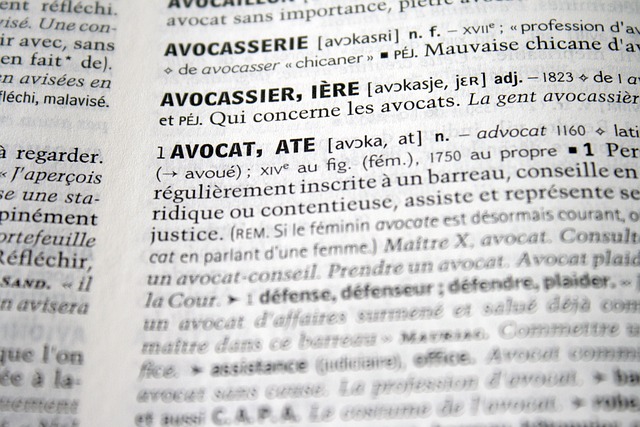DUI laws can have severe immigration repercussions, particularly for non-citizens, potentially leading to deportation. Pedestrians involved in such incidents have distinct legal protections, including the right to remain silent and consult an attorney, but their interactions with law enforcement can still impact visa status. Non-citizens facing deportation after a DUI must navigate complex legal systems, while advocacy groups play a vital role by providing resources and legal guidance to protect pedestrians' rights. Understanding one's rights is crucial for fair treatment during these challenging times.
“Uncovering the complex interplay between DUI (Driving Under the Influence) incidents and immigration consequences is crucial, especially considering the severe impacts on non-citizens. This article navigates through a labyrinthine legal landscape, exploring how DUI offenses affect visa status and pedestrian rights in these scenarios. We delve into the potential deportation risks for non-citizen drivers and their passengers, while also providing insights into legal defenses available to protect immigration status. Additionally, resources are highlighted for immigrant victims, ensuring they receive support and advocacy following a DUI incident.”
- Understanding DUI Laws and Their Impact on Immigration Status
- Rights of Pedestrians Involved in DUI Incidents
- Consequences for Non-Citizens: Visas and Deportation Risks
- Legal Defenses and Strategies for DUI Cases with Immigration Implications
- Supporting Resources and Advocacy for Immigrant Victims of DUI Accidents
Understanding DUI Laws and Their Impact on Immigration Status

DUI laws are designed to protect public safety by impeding individuals from operating vehicles while under the influence of alcohol or drugs. However, these same laws can have severe immigration consequences for non-citizens, especially when they involve accidents affecting pedestrians. In many cases, a DUI charge—or even a conviction—can lead to deportation proceedings, as it is considered an aggravated felony. This is particularly true if there are injuries or fatalities involving pedestrians, as these incidents often attract heightened scrutiny from immigration authorities.
Understanding one’s rights and the potential implications of a DUI incident on immigration status is crucial for individuals facing these charges, especially non-citizens. Pedestrians’ rights in DUI cases must also be considered; they include fair treatment under the law and access to legal representation. Furthermore, victims of such incidents may have legal options to seek compensation and hold accountable those responsible for their injuries or loss.
Rights of Pedestrians Involved in DUI Incidents

In the event of a DUI incident, pedestrians involved have specific rights and protections under the law. Unlike drivers, pedestrians are not subject to field sobriety tests or blood draws, as they are not operating a vehicle. However, their interactions with law enforcement can still have significant implications, particularly when it comes to visa status and immigration consequences. Pedestrians may be questioned about their actions and the circumstances surrounding the incident, but they do not face the same level of scrutiny as those behind the wheel.
It’s crucial for pedestrians affected by a DUI to exercise their right to remain silent and consult with an attorney, especially if they have a valid visa or are facing immigration issues. While cooperating with police may seem beneficial, it could inadvertently harm their case, particularly in visa-related matters. Understanding their rights is essential to ensuring fair treatment during this challenging time.
Consequences for Non-Citizens: Visas and Deportation Risks

For non-citizens, a DUI (Driving Under the Influence) can have severe immigration consequences, including visa denial or revocation and potential deportation. Unlike citizens, non-citizens do not enjoy automatic protections against removal. When an individual charged with DUI is not a U.S. citizen, law enforcement officials may initiate proceedings to deport them based on their conviction. This is especially true for those without legal residency status, such as undocumented immigrants.
In these cases, the rights of pedestrians involved in DUI incidents are secondary to the immigration authorities’ focus on ensuring compliance with visa requirements and preventing unauthorized individuals from remaining in the country. Non-citizens facing deportation after a DUI must navigate complex legal systems, often requiring them to prove their residency, adherence to visa conditions, or compelling reasons to remain in the U.S., all while mitigating the impact of their criminal record on their immigration status.
Legal Defenses and Strategies for DUI Cases with Immigration Implications

In cases where an individual faces both immigration issues and a DUI charge, navigating the legal system becomes complex. Understanding one’s rights is crucial. For those who are not citizens, a DUI conviction can have severe immigration consequences, including potential deportation or denial of visa applications. One of the key aspects in these situations is to ensure that the pedestrian’s rights are protected throughout the process.
Legal defenses often involve challenging the evidence used against the individual, such as breathalyzer results or witness testimonies. Strategies may include arguing that the stop itself was illegal, especially if there were no visible signs of intoxication and the police lacked probable cause. Additionally, attorneys can focus on protecting their client’s rights by ensuring that any statements made to law enforcement are not misused in immigration proceedings.
Supporting Resources and Advocacy for Immigrant Victims of DUI Accidents

For immigrant victims of DUI accidents, navigating the legal system can be especially challenging, often compounded by fear and uncertainty surrounding their immigration status. It’s during these difficult times that access to supportive resources and advocacy groups becomes invaluable. Many organizations focus on providing assistance to immigrants affected by drunk driving incidents, ensuring they understand their rights, including those as pedestrians. These resources offer legal guidance, emotional support, and practical help in dealing with the aftermath of such accidents.
Advocacy groups play a crucial role in defending the pedestrians’ rights in DUI incidents, especially for immigrants who might be hesitant to speak up due to language barriers or fear of deportation. They work tirelessly to raise awareness about the specific challenges faced by this vulnerable population and lobby for policy changes that protect their rights. By connecting victims with legal representatives specializing in immigration law, these groups help ensure fair treatment and proper documentation processes, fostering a sense of security and justice for those who have already endured significant trauma.
In conclusion, understanding the intricate relationship between DUI laws and immigration status is crucial for both non-citizen drivers and pedestrians. The potential consequences, including visa issues and deportation risks, underscore the importance of legal defenses tailored to these unique cases. By leveraging resources and advocacy groups dedicated to immigrant rights, victims of DUI incidents can navigate this complex landscape while ensuring their pedestrians’ rights are protected.






